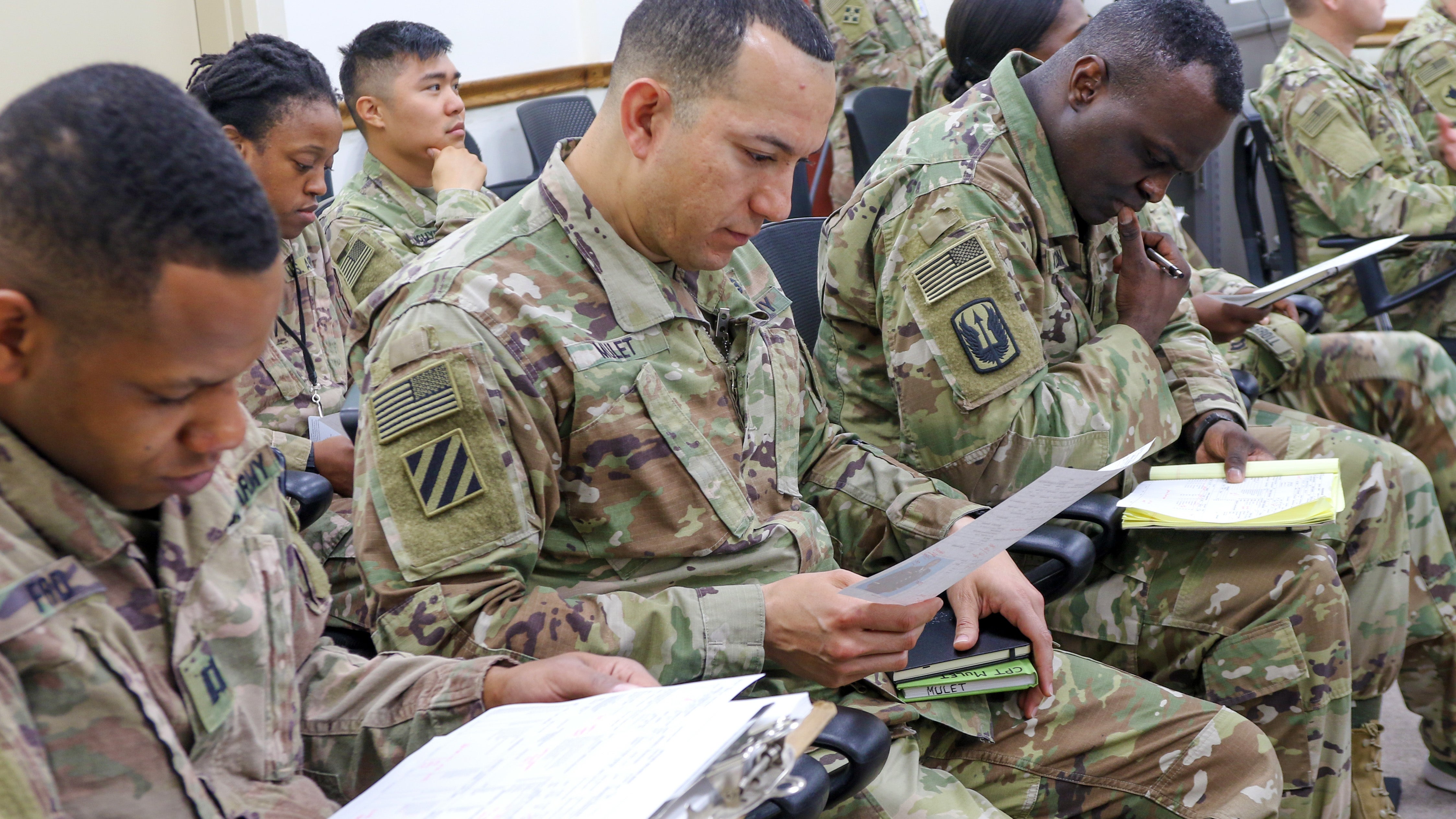Army Tests New Career Program for Captains
Army Tests New Career Program for Captains

Junior captains will soon have an opportunity to chart their careers up to seven years in advance by opting into a program for the most “highly talented” among them, a senior Army officer said during a virtual event hosted by the Association of the U.S. Army.
A new system called Talent Based Career Alignment will be tested with officers in the Captains Career Courses that begin in late August through early September in the armor, infantry, logistics, air defense artillery and field artillery branches.
The intent is to retain talented officers with young families who may feel uncertain about how their careers will play out as well as those who may be reaching the end of their initial obligation to the Army.
By giving them an assured pathway from the Captains Career Course through promotion to major and attendance at the Command and General Staff College, they are more likely to stay, and the Army will get to keep and continue developing its most promising leaders.
“What we’re going to be able to do is take officers and give them some predictability and stability as long as they can continue to perform from where they were as these junior captains,” Maj. Gen. J.P. McGee, director of the Army Talent Management Task Force, said Aug. 13 during The AUSA Noon Report webinar.
The effort being undertaken by the task force is part of the Army’s overhaul of its personnel management system. Talent management is a top priority for Army leaders, and the service has rolled out several efforts to refine the way it acquires, develops, employs and retains its uniformed and civilian force.
The Army is still working to determine the best way to assess and understand the whole officer. The selection process for the Talent Based Career Alignment program likely will involve multiple sources of information, and once a captain is assessed as suitable for the program, they can decide if they want to opt in.
“If we think they’re the right match then we’re going to say, ‘here’s what we see for you for the next six to seven years,’ ” McGee said.
He explained that after they command a company, they’ll have options for which they will be pre-selected. They include a fellowship at the Office of Legislative Liaison or on the Joint Staff; or a position at the U.S. Military Academy at West Point or Project Warrior, a four-year program in which captains serve two years as an observer-coach-trainer at one of the Army’s combat training centers followed by two years as a small group instructor at Army Training and Doctrine Command.
Other options include a job with the 75th Ranger Regiment and opportunity to go through the Ranger Assessment and Selection Program, or the master’s degree program in data science at Carnegie Mellon University in Pittsburgh.
In addition to the initiative for captains, beginning in September, the Colonels Command Assessment Program involving about 400 senior officers will take place at Fort Knox, Kentucky. It is similar to the Battalion Commander Assessment Program, which took place for the first time in January and February at Fort Knox.
About 800 lieutenant colonels and majors were evaluated on their readiness to lead at the battalion level. In March, the Army announced it had selected 660 of them as principals and alternates for battalion command and key billets.
Participants in the CCAP will be tested on written and verbal communication, interview with behavioral psychologists and participate in panel interviews with senior Army officers. About 180 Army leaders and cadre will support and program and administer evaluations.
For more on the Army’s talent management efforts, click here.

